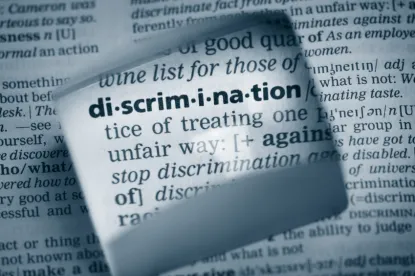As a result of a recent Fifth Circuit decision, some employers in Texas will now face a tougher hurdle when defending against Title VII disparate treatment discrimination claims in federal court. The United States Court of Appeals for the Fifth Circuit recently held that in order to establish an actionable claim for disparate treatment discrimination under Title VII, plaintiffs need not plead an “ultimate employment decision” related to hiring, granting leave, terminations, promotions, or pay. In a significant departure from decades-old precedent, the Fifth Circuit held that employees can survive a motion to dismiss by pleading adverse actions with respect to the “terms, conditions, or privileges of employment” without showing that the employer’s action was consequential with respect to compensation or other major benefits.
In Hamilton v. Dallas County, nine female corrections officers sued their employer, a detention center in Dallas County, Texas, for violating Title VII and the Texas Commission on Human Rights Act (TCHRA), because it modified their seniority-based scheduling policy to a gender-based scheduling policy. The new scheduling policy in question allowed only male officers to have full weekends off. Dallas County moved to dismiss, arguing that the plaintiffs failed to allege that they had suffered an actionable “ultimate employment decision” as required under a nearly thirty-year old Fifth Circuit precedent. The plaintiffs argued that this precedent, established in 1995, wrongly narrows Title VII’s broad protections. Despite acknowledging that the scheduling policy was discriminatory on its face, the district court granted the employer’s motion to dismiss, reasoning that the plaintiffs’ prima facie case lacked a necessary element set forth as binding precedent in Dollis v. Rubin – namely, an actionable adverse employment action consisting of an ultimate employment decision.
On initial appeal, a three-judge panel was constrained to affirm the lower court, based on standing precedent, but it also urged the full appellate court to take the case as an opportunity to re-examine its rule, noting that the “conduct complained of here fits squarely within the ambit of Title VII’s proscribed conduct: discrimination with respect to the terms, conditions, or privileges of one’s employment because of one’s sex.” Consequently, the court reconsidered the matter en banc and reversed the lower court’s dismissal, holding that Title VII is “not so limited” as to require an ultimate employment decision. The panel further noted that the allegations presented in this case are an “ideal vehicle for the en banc court to reexamine [the] ultimate-employment-decision requirement and harmonize [the Fifth Circuit’s] case law with [the] sister circuits to achieve fidelity with the text of Title VII.”
The Fifth Circuit held that employees are only required to show that they were subjected to workplace bias “because of a protected characteristic, with respect to hiring, firing, compensation, or the ‘terms, conditions, or privileges of employment.’” In this case, the terms and conditions of employment, specifically, the days and hours they had to work, were dictated by the employees’ gender. Citing the Supreme Court of the United States, the majority opinion notes that the statutory text of Title VII is not limited to economic or tangible discrimination. While acknowledging the defendant’s position that there should be some minimum level of harm in order for an allegation to be actionable, the circuit court concluded that its precedent in Dollis was too limiting and not supported by Title VII’s plain language. Whether “a materially adverse employment action,” “a tangible employment action” or an “objective material harm requirement”—the various standards adopted by other circuits—the Fifth Circuit determined that the employees’ allegations in this case survived a motion to dismiss, as they were “far more than ‘de minimis.’”
The majority opinion goes so far as to criticize prior Fifth Circuit decisions that adhered to Dollis, specifically describing the dismissal of one case that alleged working conditions requiring black workers to toil outdoors without access to water while white employees worked inside an air-conditioned space as an example of “some remarkable conclusions” drawn in deference to the now-overturned binding precedent. The Fifth Circuit provided several examples of adverse actions that would now constitute adverse employment actions, despite not being “ultimate employment decisions,” which included denying seniority privileges to women while allowing men to retain theirs, requiring employees of one gender to work weekends, and assigning day and night shifts based on race. In a noteworthy concurring opinion, Circuit Judge James C. Ho praised the court for “restoring the text” of Title VII, likening it to the recent Supreme Court rulings in Groff v. DeJoy and Students For Fair Admissions v. Harvard, which recently revisited precedents set under Title VII in 1977 and under Title VI in 2003, respectively.
In removing the requirement for Title VII plaintiffs to plead an “ultimate employment decision,” the Fifth Circuit’s Hamilton decision represents a significant shift for litigants in Texas, and may, indeed, give rise to “a flood of litigation over run-of-the-mill workplace squabbles,” as Dallas County insisted in its argument, but the court made clear that Title VII “does not permit liability for de minimis workplace trifles.” Plaintiffs pursuing allegations relating to employers’ biases will still be required to plead an adverse action with some measure of materiality. Future cases will further define the “precise measure of minimum workplace harm” that a plaintiff must allege to state a claim for disparate treatment discrimination under Title VII.




 />i
/>i

